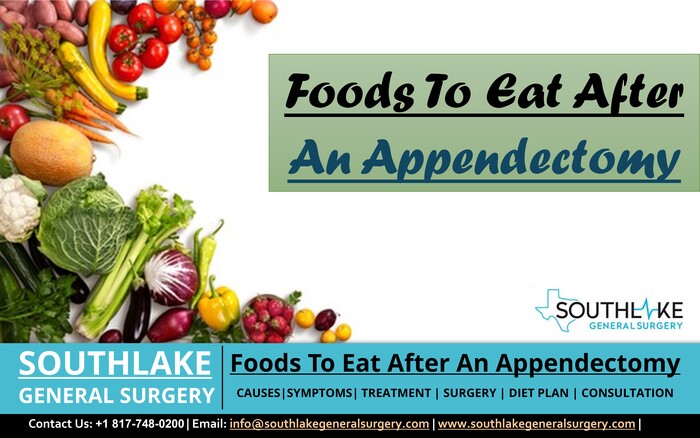An obstruction in the appendix is a common cause of appendicitis. To completely recover from appendix surgery, it is recommended that you adhere to a certain diet and follow your doctor’s instructions on Foods to Eat After an Appendectomy.
The appendix is a small pouch-like organ connected to the large intestine, and inflammation of the appendix is known as appendicitis. One’s appendix can be found in the right lower abdominal region. If not treated immediately, appendicitis can turn fatal.
What is Appendicitis
Appendicitis occurs most often between the ages of 10 and 30, however, it can affect anyone at any time. Males are more likely to experience appendicitis than females. Appendicitis risk also increases with family history. You’re more prone to contract appendicitis if a close relative of yours has already had it.
When the appendix is obstructed, it causes appendicitis. Many reasons, including an accumulation of feces, a foreign body, or a tumor, can lead to a blockage. Bacteria thrive and multiply when the appendix becomes obstructed. As a result, pus and inflammation develop in the appendix.
Appendicitis has the potential to cause the appendix to rupture, also known as burst, if it is not treated immediately. When an abscess bursts it can cause infection to spread throughout the abdomen, which is a potentially life-threatening situation. Surgery to remove the patient’s appendix is the standard course of treatment for appendicitis. The removal of the appendix is what surgeons refer to as an appendectomy.
Symptoms of Appendicitis
In most cases, the first sign of appendicitis is pain that radiates from the area around the belly button down the right side of the abdomen. Some more symptoms may include:
- Abdominal swelling
- Constipation or difficulty passing gas
- Vomiting
- Nausea
- Abdominal discomfort when pressed on the right side
- Mild fever
- A shift in the normal patterns of your bowel movements
According to Dr. Valeria Simone MD, an experienced general surgeon at Southlake General Surgery, Texas, you should avoid taking laxatives and drugs that relieve pain if you are experiencing these symptoms. Both laxatives and pain medication have the potential to conceal symptoms, making it more difficult to diagnose the underlying condition.
Your doctor will look through your medical history, perform a physical exam on you, and run tests on your blood to look for indications of infection to confirm a diagnosis. In addition to this, a CT scan or an ultrasound may be performed.
The appendix that is inflamed is typically removed surgically as part of the standard therapy for appendicitis. Antibiotics are usually prescribed to patients who have appendicitis prior to surgery to treat the infection that is causing the condition.
Appendicitis Surgery
An appendectomy is a medical term for the surgical removal of an inflamed appendix. There are two main kinds of surgical procedures that can be performed to treat appendicitis, each of which requires a different amount of time to recover from. Laparoscopic appendectomy is the most common treatment for treating uncomplicated appendicitis. Your surgeon makes one to three small incisions in the abdomen, whereas open appendectomy involves an incision in the belly that is between 2 and 4 inches long.
The laparoscopic removal of your appendix is an outpatient treatment, which means that the patient will be able to return home the same day. After completion of an open appendectomy procedure, the patient will likely need to spend at least one night in the hospital. When compared with laparoscopic appendectomy, open appendectomy is associated with a much higher risk of postoperative complications and wound infections.
Your stomach may be distended and uncomfortable after discharge, and you may feel exhausted. According to Dr. Valeria Simone MD, you may also experience gastrointestinal side effects including nausea, vomiting, diarrhea, constipation, or gas. Due to the short duration of these side effects, most patients who undergo a laparoscopic appendectomy can return to work within a period of one to three weeks. If, on the other hand, you’ve undergone open surgery, you might not be able to return to work for a couple of months.
Foods to Eat After an Appendectomy
It is standard practice to start patients on clear liquids after surgery. If they are well-tolerated, you can gradually introduce more solid foods.
“Being easy on your digestive system is the best course of action. Soups, well-cooked vegetables, and tender meat should be on the menu while you let your intestine heal from the incisions.”
Constipation is a common side effect of postoperative pain treatment. A high-fiber diet is recommended following surgery so that there is no need for straining during bowel movements. The recommended daily fiber intake for women is 21–25 grams, while for men it is 30–38 grams, as stated by Dr. Valeria Simone MD. Foods rich in dietary fiber include:
- Beans
- Green peas
- Chia seeds
- Lentils
- Whole-wheat pasta
- Broccoli
Your body can function properly after having your appendix removed, so you can go back to your regular diet and activities as soon as you feel ready. Keep in mind, however, that everyone heals at their own speed.
Appointment
For more information on Foods to Eat After an Appendectomy or consultation with Dr. Valeria Simone MD at Southlake General Surgery, Texas. You can contact our healthcare expert today at +1(817) 748-0200. You can also make an online appointment with us.

